Deskripsi
Perkenalan
Industri minyak dan gas sangat bergantung pada pipeline pig untuk transportasi dan pemeliharaan sumber daya yang berharga. Pembersihan dan pemeliharaan saluran pipa yang benar sangat penting untuk kelancaran dan efisiensi pengoperasiannya. Di antara berbagai jenis alat pembersih pipa yang tersedia, babi 2 cangkir dengan sikat memainkan peran penting. Pada artikel ini, kita akan melihat secara mendalam jenis babi pipa khusus ini serta berbagai fitur dan aplikasinya.
Apa itu Babi Pipa?
Babi pipa adalah alat khusus yang digunakan untuk membersihkan, memeriksa, dan memelihara jaringan pipa. Perangkat ini, juga dikenal sebagai pengikis pipa atau pembersih pipa, dimasukkan ke dalam pipa dan didorong melewatinya melalui aliran produk atau dengan cara mekanis. Babi pipa biasanya berbentuk silinder dan dirancang agar pas dengan diameter pipa.
Babi Pipa 2 Cangkir dengan Kuas: Suatu Tinjauan
Babi pipa 2 cangkir dengan sikat menggabungkan efisiensi babi kerangka dengan manfaat tambahan dari alat tambahan sikat, menjadikannya pilihan yang sangat baik untuk pemeliharaan pipa. Alat pembersih ini dirancang untuk memberikan tingkat fleksibilitas dan kemampuan beradaptasi yang tinggi untuk berbagai kondisi saluran pipa. Struktur babi terdiri dari dua cangkir yang terbuat dari bahan tahan lama seperti karet, poliuretan, atau karet fluor, bersama dengan sikat untuk meningkatkan kinerja pembersihan.
Fitur Utama Babi 2 Cangkir dengan Kuas
Fleksibilitas Tinggi: Babi 2 cangkir dengan sikat dirancang untuk melewati tikungan, siku, dan bagian pipa yang menantang lainnya, memastikan bahwa semua area dibersihkan secara menyeluruh.
Peningkatan Kinerja Pembersihan: Perlengkapan sikat pada babi ini membantu menghilangkan kotoran membandel, endapan, dan kontaminan lainnya dari dinding bagian dalam pipa. Kemampuan pembersihan tambahan ini memastikan operasi pembersihan saluran pipa yang lebih efektif dan komprehensif.
Properti Penyegelan yang Cocok: Cangkir pada babi 2 cangkir dengan sikat memberikan segel yang kuat pada dinding pipa, memastikan bahwa kontaminan didorong ke depan dan dikeluarkan dari pipa selama proses pembersihan.
Tahan Lama dan Tahan Lama: Terbuat dari bahan berkualitas tinggi, babi 2 cangkir dengan sikat dirancang untuk tahan terhadap kondisi keras dalam jaringan pipa minyak dan gas serta memberikan masa pakai yang lebih lama.
Aplikasi Babi 2 Cangkir dengan Kuas
Babi 2 cangkir dengan sikat cocok untuk berbagai tugas pemeliharaan pipa, termasuk:
Pembersihan Saluran Pipa: Fungsi utama dari babi 2 cangkir dengan sikat adalah untuk membersihkan bagian dalam pipa minyak dan gas. Perlengkapan sikat membantu menghilangkan akumulasi kotoran dan kontaminan, memastikan aliran sumber daya yang lancar dan efisien.
Penghilangan Penyiraman: Babi ini dapat digunakan untuk membuang air dari saluran pipa, memastikan bahwa material yang diangkut tetap tidak terkontaminasi.
Isolasi Bagian Pipa: Selama tugas pemeliharaan atau inspeksi, babi 2 cangkir dengan sikat dapat digunakan untuk mengisolasi bagian pipa tertentu, mencegah pencampuran produk yang berbeda secara tidak sengaja.
Bahan Kerangka:
Baja Tahan Karat:
Ada tiga jenis bahan kerangka yang tersedia untuk babi pembersih pipa. Tipe pertama adalah stainless steel yang memiliki varian seperti 316ss, 316lss, dan 304ss. Baja tahan karat adalah logam yang sangat tahan lama dan kuat, terutama karena kandungan kromium dan nikelnya. Kromium membentuk lapisan oksida pada permukaan logam, melindunginya dari korosi dan keausan, sementara nikel meningkatkan kekuatan dan keuletan logam. Selain itu, baja tahan karat menawarkan ketahanan asam yang sangat baik. Babi dengan kerangka baja tahan karat dapat menampung pemancar, menjadikannya pilihan yang cocok jika Anda memerlukan fitur ini.
Baja Karbon:
Baja karbon adalah pilihan yang lebih hemat biaya dibandingkan baja tahan karat, namun tidak dapat menampung pemancar karena gangguan medan magnet. Namun, jika diameter pipa (DN) lebih besar atau sama dengan 300, pemancar dapat ditambahkan karena jaraknya memungkinkan operasi terpisah tanpa gangguan.
ABS:
Untuk babi pembersih pipa dengan diameter (DN) 200 atau lebih kecil, ABS dapat dipilih sebagai bahan kerangka. Meski lebih mahal dibandingkan dua bahan lainnya, ABS secara efektif mencegah ledakan akibat percikan api, sehingga menjamin keselamatan selama pengoperasian. Selain itu, ABS lebih ringan dan menawarkan ketahanan asam yang kuat.
Memilih Babi 2 Cangkir yang Tepat dengan Kuas
Saat memilih babi 2 cangkir dengan sikat untuk kebutuhan pemeliharaan saluran pipa Anda, pertimbangkan faktor-faktor berikut:
Diameter Pipa: Pastikan babi yang Anda pilih sesuai dengan diameter pipa yang perlu Anda bersihkan.
Kompatibilitas Bahan: Pilihlah babi dengan cangkir dan sikat yang terbuat dari bahan yang tahan terhadap bahan kimia dan zat yang ditemukan di saluran pipa Anda.
Aksesoris Tambahan: Tergantung pada kebutuhan spesifik Anda, Anda mungkin perlu mempertimbangkan aksesori tambahan, seperti cakram pengukur, sikat kawat, sikat baja pegas, baja magnet, atau pemancar.
Bahan Kerangka: Bahan kerangka harus dipilih berdasarkan faktor-faktor seperti daya tahan, biaya, dan potensi kebutuhan pemancar. Pilihannya termasuk baja tahan karat, baja karbon, dan ABS.
Aksesoris Pipa Babi
Babi pembersih pipa dilengkapi dengan berbagai aksesori yang meningkatkan fungsionalitas dan efektivitasnya dalam menjaga kemurnian dan efisiensi pipa minyak dan gas. Aksesori ini dapat disesuaikan berdasarkan kebutuhan spesifik dan kondisi saluran pipa. Berikut beberapa aksesoris utama babi pembersih pipa:
Piala: Cangkir adalah aksesori utama pembersih saluran pipa, yang memberikan segel efektif pada dinding saluran pipa sekaligus mendorong serpihan dan kontaminan ke depan. Cangkir dapat dibuat dari bahan seperti karet, poliuretan, dan karet fluor, tergantung pada aplikasi spesifik dan kondisi saluran pipa.
Disk: Cakram adalah komponen utama lain dari babi pembersih pipa, yang menawarkan panduan dan dukungan selama proses pembersihan. Cakram dapat membantu membersihkan babi yang masuk ke dalam pipa dengan lebih mudah dan meningkatkan kinerjanya secara keseluruhan. Biasanya cakram terbuat dari poliuretan.
Gasket: Gasket digunakan untuk mengisolasi jarak antara cangkir atau cakram, memastikan jarak dan dukungan yang tepat selama proses pembersihan. Gasket di antara cakram biasanya terbuat dari poliuretan, sedangkan yang digunakan di antara cangkir dapat dibuat dari nilon atau baja, bergantung pada diameter babi.
Mengukur Cakram: Cakram pengukur digunakan untuk mengukur diameter internal pipa dan mendeteksi adanya anomali atau deformasi. Umumnya dibuat dengan ukuran 80%-95% dari diameter dalam pipa, dengan 85% adalah ukuran yang paling umum.
Sikat Kawat: Sikat kawat berfungsi sebagai aksesori untuk meningkatkan kinerja pembersihan dengan secara efektif menghilangkan kotoran membandel, endapan, dan kontaminan lainnya dari dinding bagian dalam pipa. Sikat kawat dapat dibuat dari bahan seperti baja karbon, baja tahan karat, atau nilon, tergantung kebutuhan dan kondisi pipa.
Kesimpulan
Babi 2 cangkir dengan sikat merupakan alat penting untuk menjaga kebersihan dan efisiensi jaringan pipa minyak dan gas. Desainnya yang unik, menggabungkan manfaat kerangka babi dengan alat sikat, memastikan pembersihan saluran pipa secara menyeluruh dan efektif. Saat memilih babi 2 cangkir dengan sikat untuk kebutuhan perawatan pipa Anda, pertimbangkan faktor-faktor seperti diameter pipa, kompatibilitas material, dan aksesori tambahan untuk memastikan hasil terbaik.

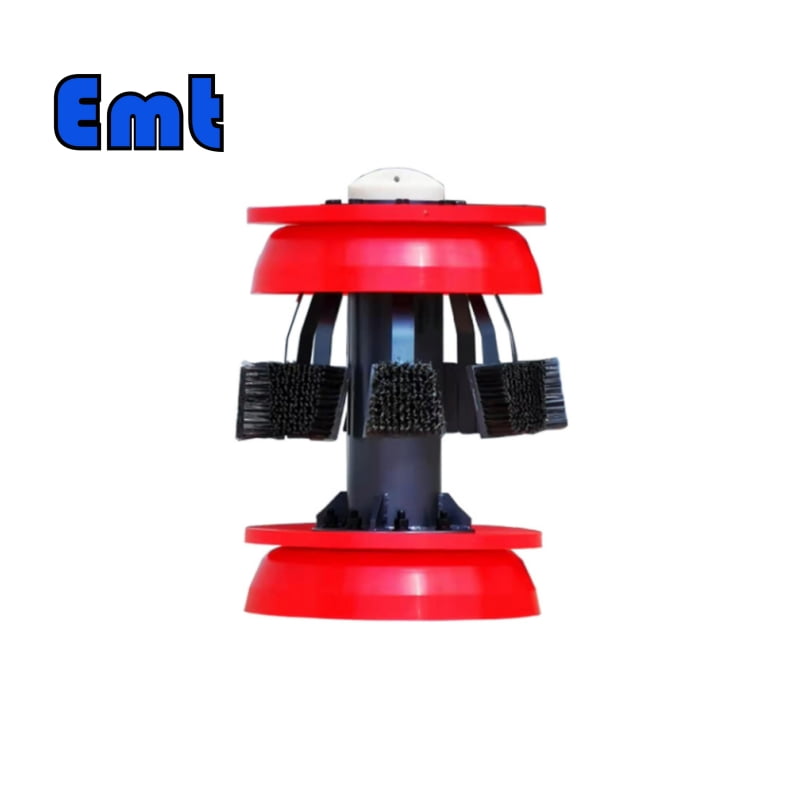
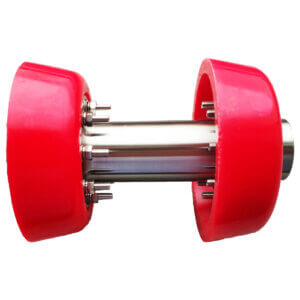
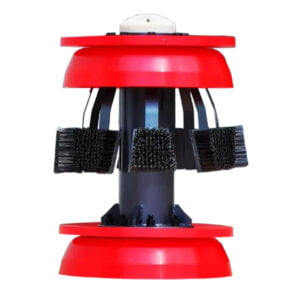
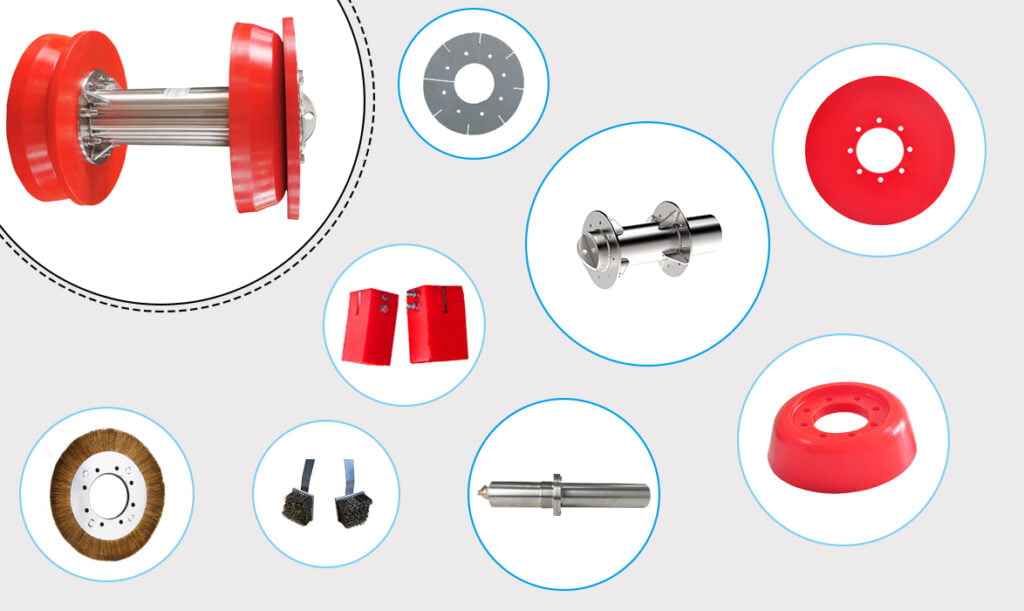
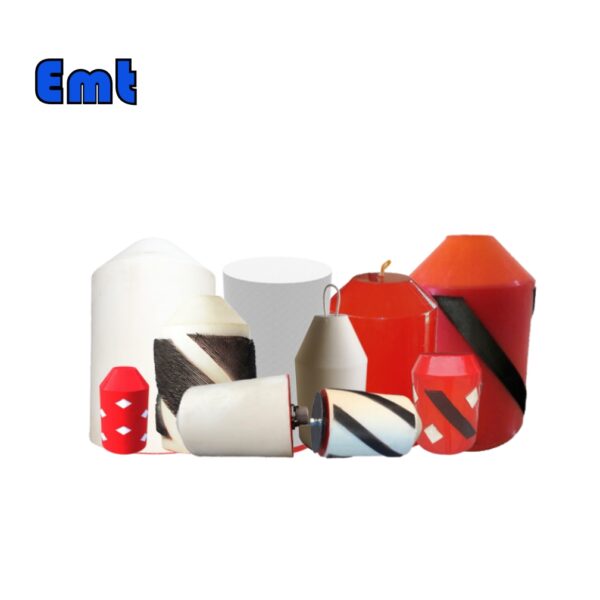
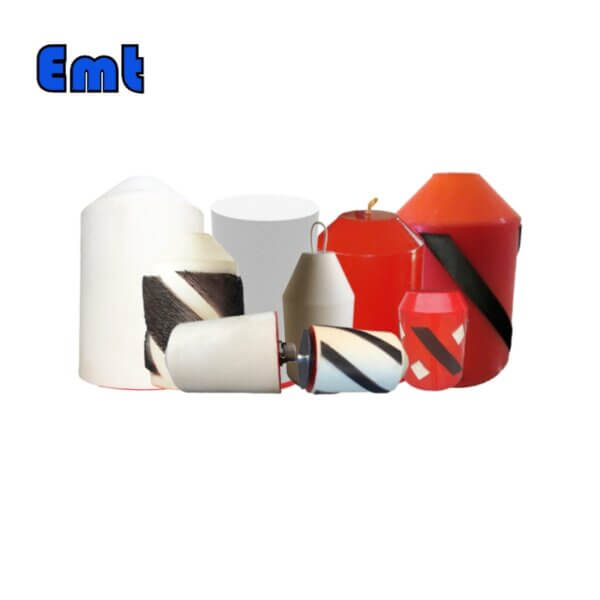
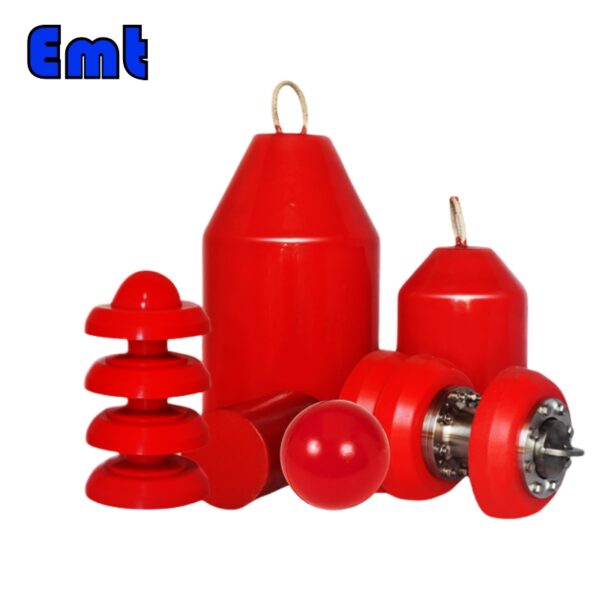
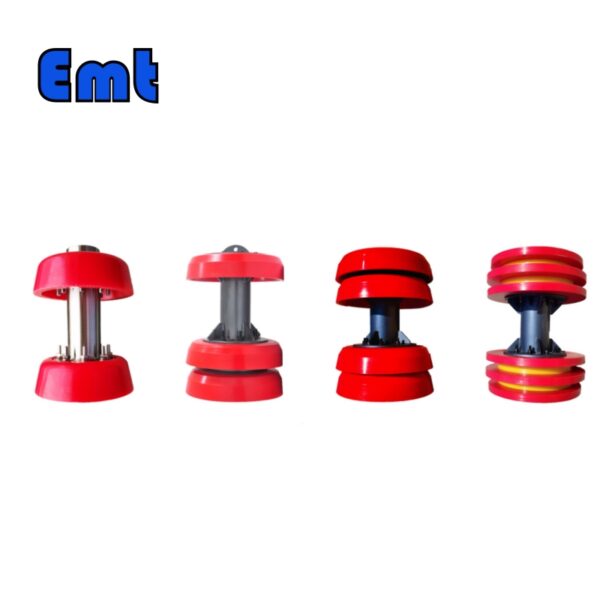
Ulasan
Belum ada ulasan.